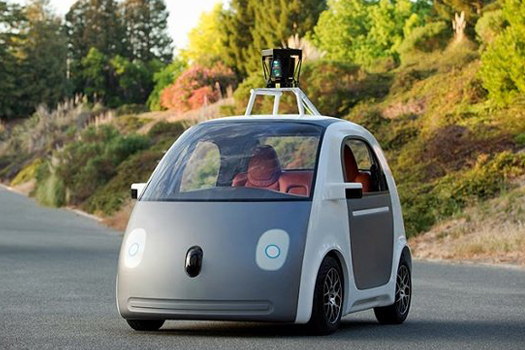

Technophiles around the world have probably gone crazy out of excitement but is the Google car really as great as it seems? In advancement then of course, who would have thought we would be able to have driverless cars on the road. Yet when it comes to headlines, unfortunately they are not all for good reasons.
One such headline complained of a bump with a bus and another test car that became stubborn in its place refusing to move due to the closeness of other vehicles. The tech lovers are probably overjoyed yet the realists are still having their doubts. A driverless car in a world of busy drivers may not seem such a good idea.
Google has been supported by the public seeing US state secretary John Kerry at the global entrepreneurship familiarizing himself with the Google car. This sheds some light on the possibility of the driverless car progressing and incites interest in what laws will come with it.
The biggest issue Google will have is the legislation of these cars in the US. Considering the letter sent to Google by the US national highway traffic safety earlier in the year it seems like that won’t be such a difficult matter. The letter hinted at artificial intelligence being considered as a federal law vehicle driver. If this happens then the door will open to legalizing these cars.
At the moment these cars are only legal as testers and under the condition that they have normal controls and human intervention in the case of emergency which means the driverless car must have a human present. At the moment it defies the point yet there is a serious possibility of progress.
These cars do have steering wheels and pedals however they can be removed and the purpose at the moment seems to be to comply with American laws. Once the car is legalized it could very well lose its wheel and pedals unless of course that’s a must by law. California and other US states have tested these cars and usually show them without any controls, but that is more for publicity as the law demands normal controls at the moment.
Google recently hired a new legal chief and though some people believe it’s because they intend to change their company and become independent others believe it’s to help this Google car project.
Google Car does not seem to have the goal of entering or competing in the automotive industry like others such as Tesla as this would be a huge risk and very difficult for anyone to be willing to allow all the disruptions that would hit the industry with this move. It seems more like Google are competing in technology and the race to develop artificial intelligence with licensed self-driving cars.
Google car is more of a way to get Google software into the world of vehicles just as android is adopting Google mapping and smartphone tech into many cars. So it’s more about spreading the software then competing with firms such as Toyota or ford. The potential of these cars is great and within a few decades it seems there will be billions.
In May 2016, Google announced alongside Fiat Chrysler that they intended to build 100 of these cars as testers. This highly anticipated move made FCA known as a Google car collaborator and at that time the first one to be officially announced. The progress seems to be increasing.
Even though Google’s not competing with the automotive industry there are many rivals battling to push ahead of Google in the world of cars and driving technology. Some of these are Apple, Uber, Bosch, Delphi and other carmakers such as Audi, BMW, Honda, Mercedes-Benz, Nissan, Peugeot, Toyota and Volvo. There are many rivals as the world loves driving software and is crazy over technology so everyone wants to bring something new and impressive.
This competition means the future will probably see many self-driving systems arrive and once the law changes the door will open for the techs to flood through. Public demand is great and the investment companies are making is huge so it seems there’s no holding back. At this point some sort of global standardisation is essential however, time will tell if the legalisation comes with standards and rules of systems or the huge investments overtake all.
Coming back to Google this is what we know so far:
The expected time it will take for these autonomous vehicles to become available to the public and across the world is about 4 years. However, the legalization is something that’s unpredictable, technically they may seem effective and compatible but there are many aspects to consider and much more testing that needs to be done before it becomes legal.